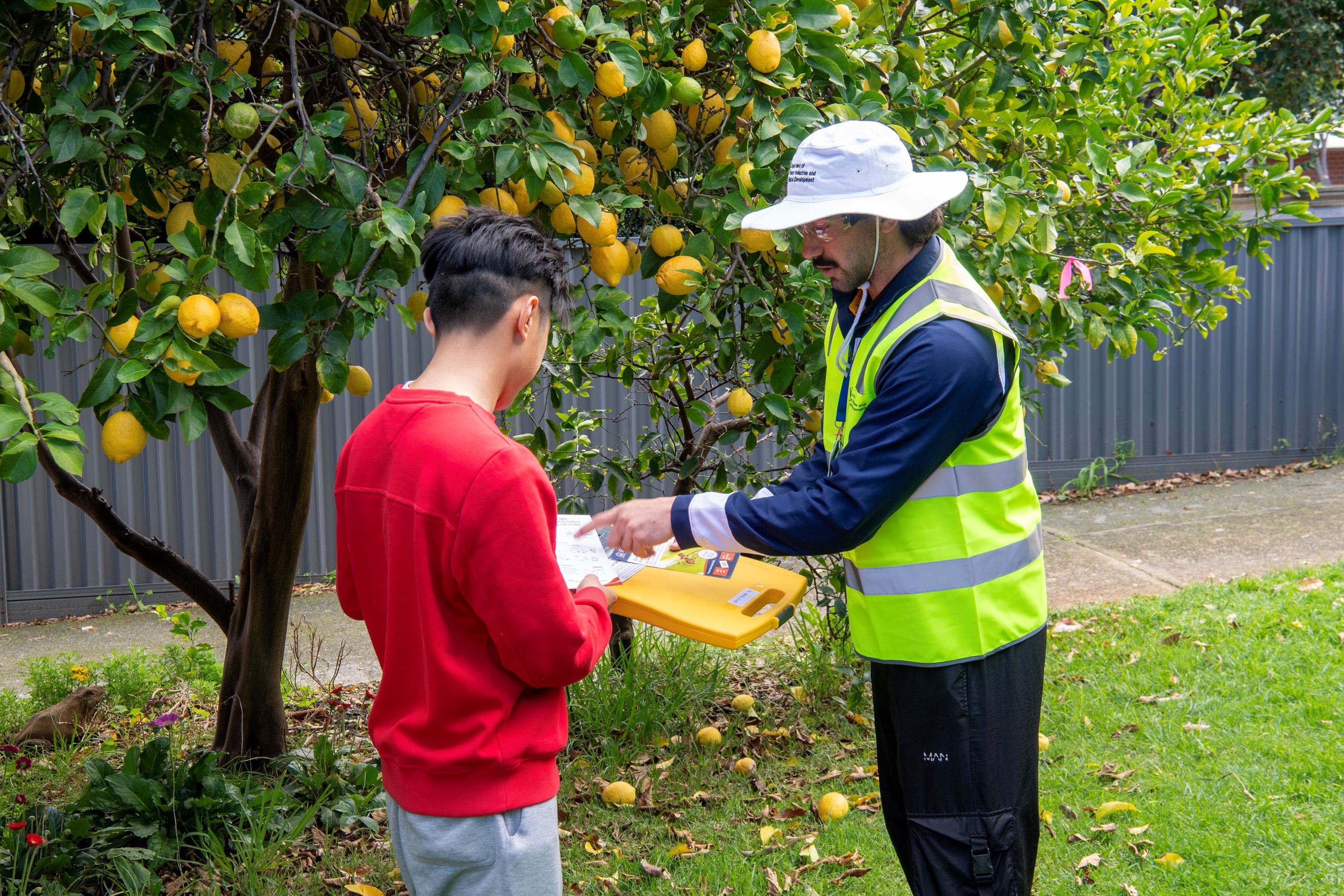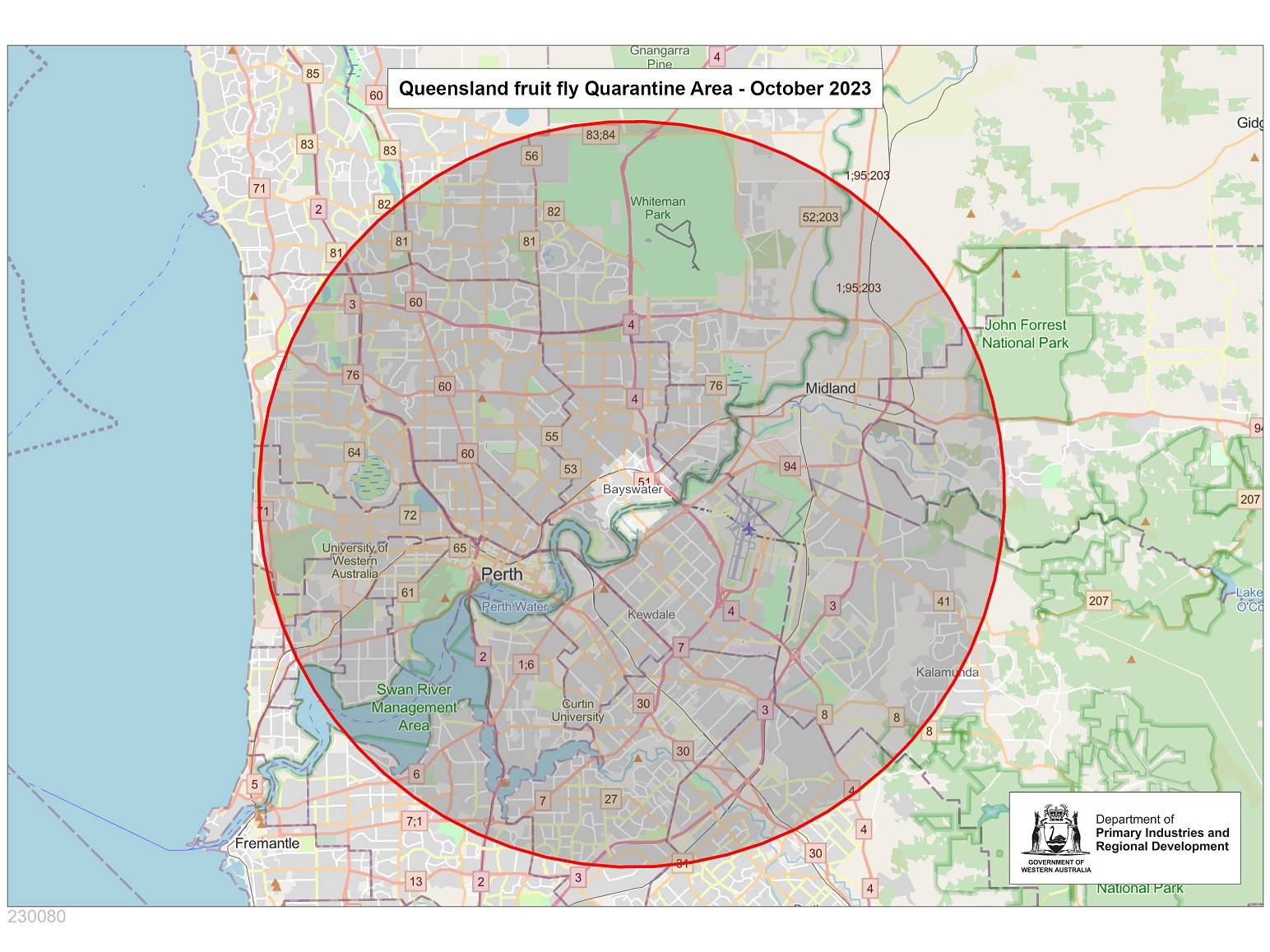
Strict requirements for moving of fruit and fruiting vegetables in Bayswater and Belmont have now been lifted, with residents now subject to the same movement conditions as those in the broader Quarantine Area.
Residents are encouraged to continue good garden and waste disposal hygiene to help prevent future outbreaks of this significant pest, which could devastate the State’s fruit and vegetable industries.
The Quarantine Area continues to be in place and includes Perth, Belmont, Gosnells, Kalamunda, Vincent, Joondalup, Swan, Wanneroo, Melville, Canning, Bayswater, South Perth, Subiaco, Stirling, Nedlands, Bassendean, Belmont, Claremont, Victoria Park, Cambridge and Mundaring.
While Bayswater and Belmont residents are no longer required to cook, freeze, process or solarise host fruit or fruiting vegetables before disposal, these measures are still highly recommended to prevent this or other pests taking hold in the area.
Similarly, these residents do not have to remove fallen fruit every three days but are encouraged to do so to maintain good garden hygiene.
Requirements for commercial horticulture businesses in the Quarantine Area remain and DPIRD officers continue to liaise with growers and provide assistance where required.
The new Quarantine Area Notice is in place until Tuesday, 5 December 2023 and will be reviewed as the biosecurity response progresses.
DPIRD Chief Plant Biosecurity Officer Sonya Broughton encouraged the community to remain vigilant to support the biosecurity response.
“The biosecurity response is making good headway and the program is now being wound back as we move into the next phase of the campaign,” Dr Broughton said.
“While baiting and property inspections have ceased, monitoring and surveillance will continue.
“The department thanks residents, businesses and industry for their continued support to eradicate this potentially damaging pest.”
For updated information on the new requirements the visit the Qfly biosecurity response DPIRD webpage www.agric.wa.gov.au/qflyupdate.
Reports of suspected Qfly should still be made to DPIRD’s Pest and Disease Information Service on 9368 3080, email padis@dpird.wa.gov.au or via the MyPestGuide Reporter app.



